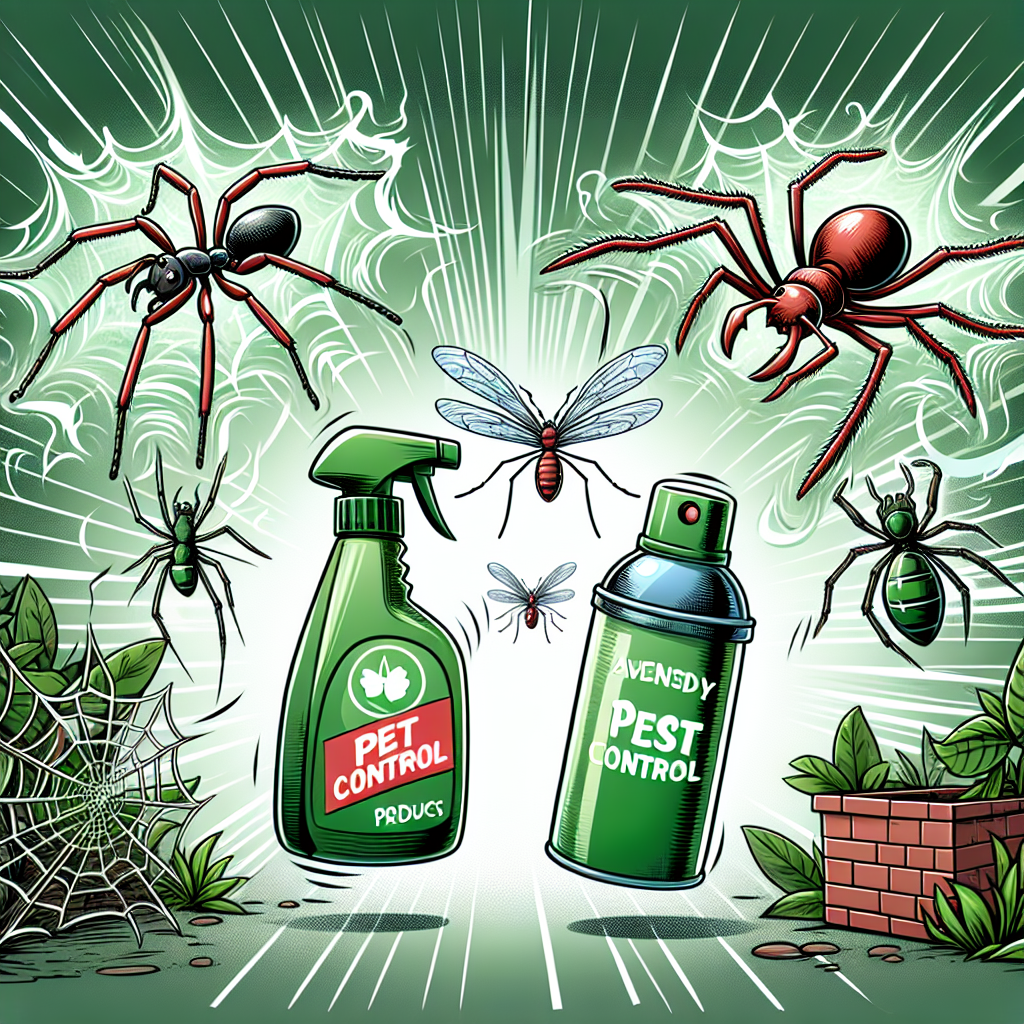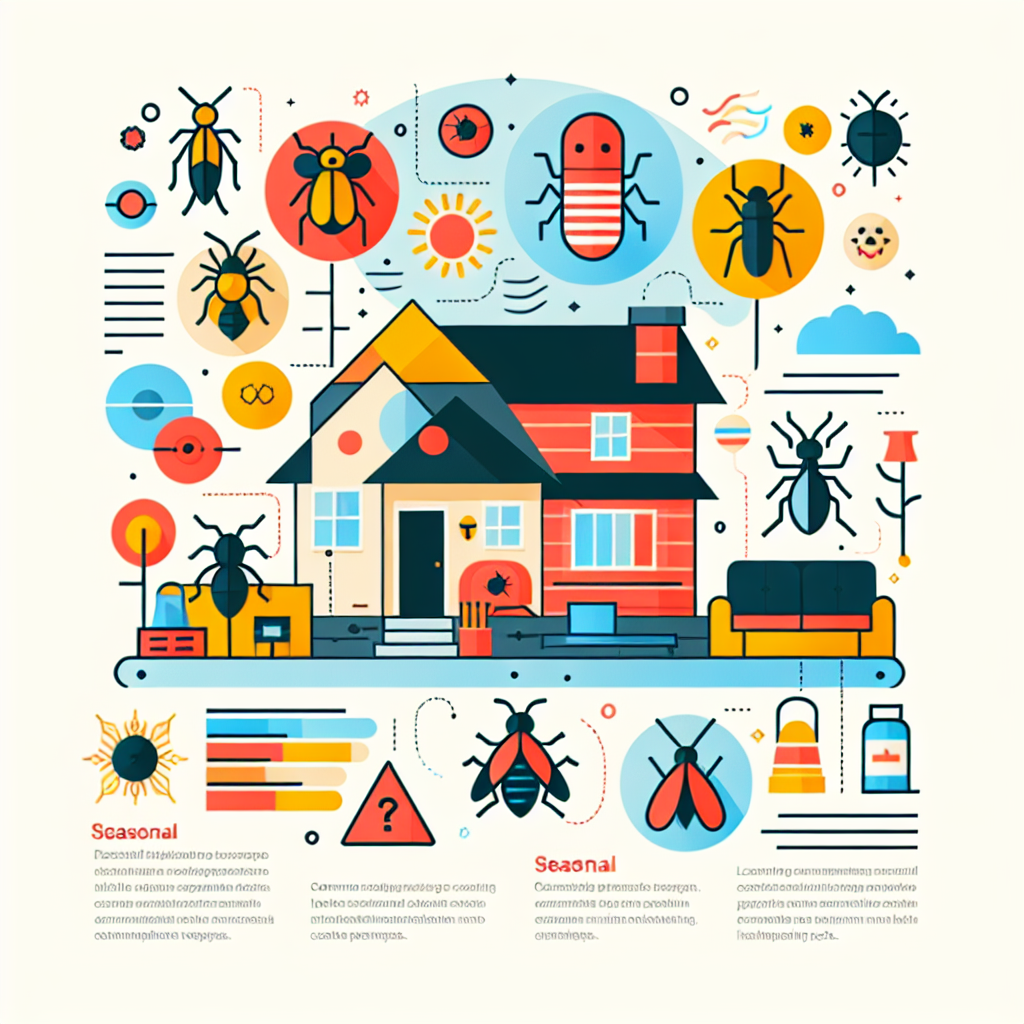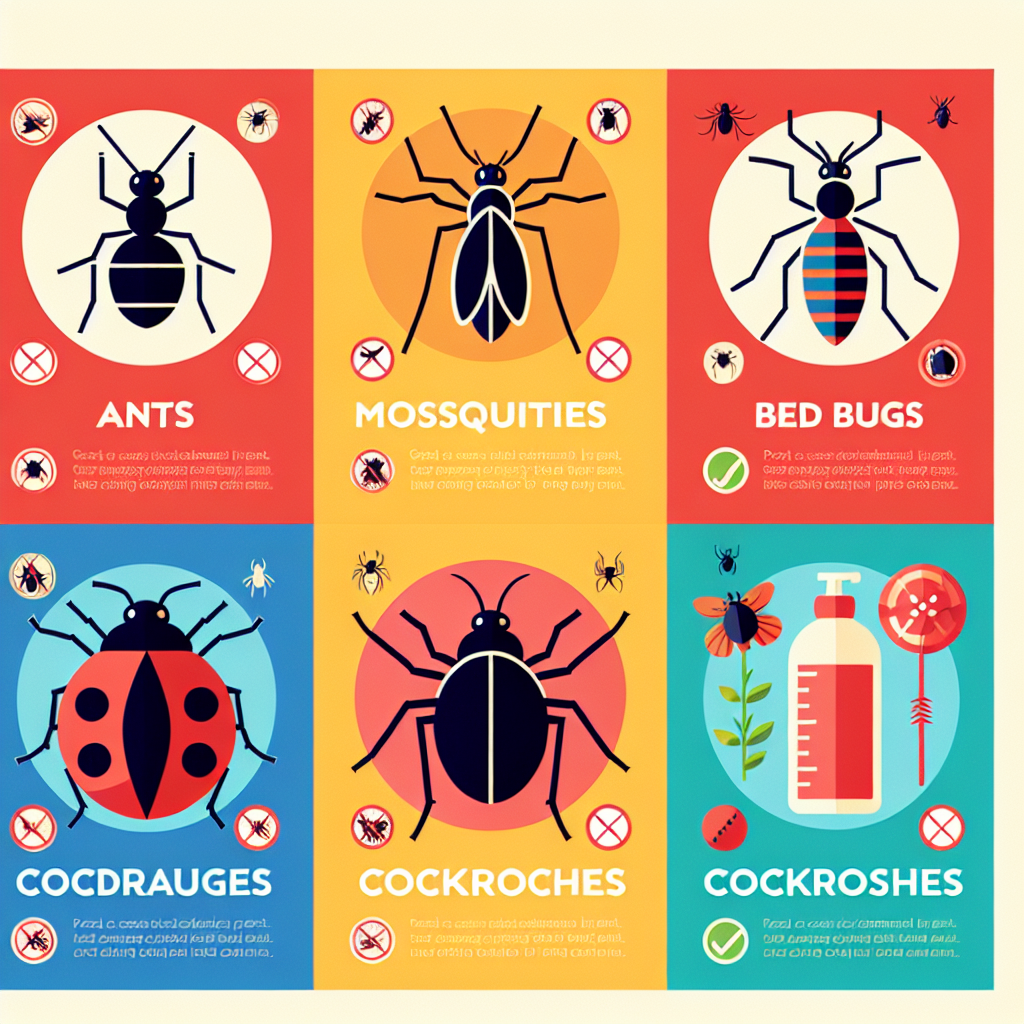Contents
- 1 Smart Bug Control: Integrating Prevention with Protection
Smart Bug Control: Integrating Prevention with Protection
Introduction
Welcome to the world of smart bug control, where prevention meets protection in a delightful dance that keeps your home pest-free! Imagine your living space as a fortress, and bugs as the pesky invaders trying to breach your defenses. But fear not! With the right strategies in place, you can turn your home into a bug-proof paradise.
In this blog post, we’ll explore the multifaceted approach to bug control, blending traditional methods with innovative solutions. We’ll dive into the realm of integrated pest management, where prevention is just as vital as extermination. This means you won’t just be reacting to infestations; you’ll be proactively keeping them at bay.
Did you know that approximately 1.7 million homes in the U.S. experienced termite infestations in 2020? That’s a staggering number! And while termites are sneaky little devils, they are just one of many pests that can wreak havoc on your home. From ants marching through your kitchen to mosquitoes plotting their next bite, understanding how to manage these unwelcome guests is crucial.
We’ll also touch on sustainable practices because who said bug control can’t be eco-friendly? With options like natural insect repellents and humane pest removal methods, you can protect your home without harming Mother Earth.
So grab your favorite bug spray alternatives and let’s embark on this journey together because when it comes to pest management, knowledge is power (and sometimes a little bit of humor doesn’t hurt either)! Ready? Let’s dive into the nitty-gritty of effective bug control strategies!

Understanding Bug Control
So, what exactly is bug control? Think of it as the superhero squad for your home, swooping in to save you from those pesky intruders that want to crash your cozy living space. Bug control encompasses a variety of strategies aimed at managing and eliminating unwanted insects and pests, ensuring that your home remains a sanctuary rather than a battleground.
At its core, bug control isn’t just about waving a magic wand (or bug spray) to zap away those critters. It’s about understanding their behavior, life cycles, and habitats like knowing when your local mosquitoes are gearing up for their summer party. This is where integrated pest management (IPM) comes into play.
Importance of Integrated Pest Management
IPM is like the Swiss Army knife of pest solutions it combines multiple strategies for effective pest management. Instead of relying solely on chemical treatments, IPM focuses on prevention through environmental control and monitoring. This means:
- Monitoring: Regular checks help catch infestations early.
- Exclusion: Sealing entry points keeps bugs out in the first place.
- Cultural Practices: Adjusting your environment can deter pests naturally like keeping food sealed tight or reducing standing water for mosquitoes.
- Biological Control: Utilizing natural predators can be a game changer hello ladybugs, goodbye aphids!
- Chemical Control: When all else fails, targeted treatments can be used sparingly to minimize impact on beneficial insects.
Did you know? According to the Environmental Protection Agency (EPA), integrated pest management can reduce pesticide use by up to 50% while still effectively controlling pests!
This holistic approach not only protects your home but also contributes to a healthier environment. By focusing on prevention and sustainable practices, you’re not just fighting bugs; you’re creating an ecosystem where they can’t thrive. So next time you think about bug control, remember: it’s not just about extermination; it’s about smart management and living in harmony with nature.
Pest Prevention Strategies
When it comes to bug control, prevention is your best friend. Think of it as locking the door before the party starts you want to keep unwanted guests out! Here are some effective strategies that can help you stay ahead in the pest management game:
Seasonal Pest Prevention Tips
Each season brings its own set of pests. Here’s how to prepare:
- Spring: Conduct a thorough inspection of your home and yard. Look for cracks, crevices, and any signs of insect activity.
- Summer: Keep your garden tidy and remove standing water to deter mosquitoes. Regularly check for ant trails.
- Fall: Seal any entry points to prevent rodents from moving in for the winter.
- Winter: Store firewood away from your home and inspect it for pests before bringing it inside.
Indoor Bug Barriers and Their Effectiveness
Your home should feel like a fortress against bugs! Consider these indoor bug barriers:
- Weather Stripping: Seal gaps around doors and windows to keep pests at bay.
- Screens: Install fine mesh screens on windows and vents to allow fresh air without inviting insects in.
- Baits and Traps: Use effective ant traps and baits strategically placed near entry points for maximum impact.
Outdoor Insect Protection Measures
Your yard is an extension of your home, so let’s make sure it’s bug-proof!
- Landscaping Choices: Opt for plants that repel insects. Marigolds, for instance, are like nature’s bouncers!
- Pest Barriers: Create physical barriers such as mulch or gravel around plants to deter pests from making themselves at home.
- Natural Deterrents: Consider using natural insect repellents like essential oils or vinegar sprays as eco-friendly pest solutions.
Takeaway: A proactive approach using these pest prevention strategies can save you time, money, and headaches down the line. Start implementing these tips today!

Effective Pest Management Techniques
When it comes to bug control, the right techniques can make all the difference between a peaceful home and a bug-infested nightmare. Whether you’re battling ants in the kitchen or mosquitoes in the backyard, having a solid pest management strategy is essential. Here are some effective techniques that combine professional expertise with DIY solutions.
Professional Exterminators Near Me
Sometimes, you just need to call in the cavalry. Professional exterminators are trained to handle infestations that might leave you scratching your head (and not just from the bugs). They offer:
- Comprehensive Inspections: Experts can identify not only existing infestations but also potential problem areas.
- Tailored Solutions: From ant control to termite control, they customize their approach based on your specific needs.
- Long-Term Prevention: Many services include follow-up visits and advice on seasonal pest prevention tips.
DIY Bug Treatments for Homeowners
If you’re feeling adventurous (or maybe just a bit thrifty), there are plenty of DIY bug treatments that can be effective. Consider these options:
- Natural Insect Repellents: Vinegar, essential oils, and even soap can deter pests without harsh chemicals.
- Effective Ant Traps and Baits: Using bait stations with slow-acting insecticides can help eliminate entire colonies over time.
- Indoor Bug Barriers: Sealing cracks and crevices around windows and doors keeps unwanted guests at bay.
Child-Safe Insecticides and Pet-Friendly Bug Sprays
Your kids and pets deserve a safe environment! Look for insecticides labeled as child-safe and pet-friendly. These products often use natural ingredients, making them less harmful while still effective against pests.
The Power of Integrated Pest Management (IPM)
A holistic approach known as Integrated Pest Management (IPM) combines various methods for optimal results. This strategy includes:
- Cultural Controls: Changing habits like lawn care or food storage to make your home less inviting to pests.
- Biological Controls: Introducing beneficial insects that prey on pests think ladybugs munching on aphids in your garden!
- Pest Monitoring: Regularly checking for signs of pest activity helps catch issues before they escalate into full-blown invasions.
The key takeaway? Effective bug control is all about balance combining professional help with smart DIY tactics can create an environment where pests don’t stand a chance. So gear up, take action, and reclaim your space!
Common Pests and Their Control Methods
When it comes to bug control, knowledge is power! Understanding the common pests that invade our homes and the best ways to evict them can save you time, money, and a lot of frustration. Let’s dive into the nitty-gritty of pest control, shall we?
-
Ant Control Strategies
These tiny invaders can turn your kitchen into a buffet faster than you can say “sugar ant.” Effective strategies include:
- Effective traps: Bait traps with sugar or protein to lure them in.
- Barrier methods: Use diatomaceous earth around entry points for a natural barrier.
- Elimination of food sources: Keep counters clean and store food in airtight containers.
-
Mosquito Control Solutions
No one wants to be the main course at an outdoor barbecue! Here are some effective mosquito control solutions for residential areas:
- Standing water elimination: Remove any stagnant water where mosquitoes breed.
- Natural repellents: Plant lavender or citronella in your garden for eco-friendly deterrents.
- Mosquito traps: Consider using CO2 traps that attract and capture these pesky bugs.
-
Bed Bug Treatment Options
If you think bed bugs are just a myth, think again! Here’s how to tackle these nocturnal nuisances:
- Advanced detection techniques: Use heat detection devices to find hidden infestations.
- Treatment plans: Professional exterminators often recommend heat treatment combined with insecticides for maximum effectiveness.
- Diy methods: Wash bedding in hot water and vacuum regularly to keep them at bay.
-
Cockroach Control Methods
Cockroaches are like the cockroaches of pests hardy and hard to get rid of! Here’s how to deal with them:
- The bait game: Use gel baits that roaches will take back to their nests.
- Cockroach motels: Set up sticky traps in areas where you’ve seen them scurrying about.
- Avoiding clutter: Keeping your home tidy helps eliminate hiding spots!
-
Spider Removal Tactics
If spiders give you the creeps, don’t worry there are ways to send them packing!
- Expert identification tips: Know which spiders are harmful (like black widows) and which ones are just hanging out (like harmless house spiders).
- Natural repellents: Essential oils like peppermint can deter spiders without harsh chemicals!


